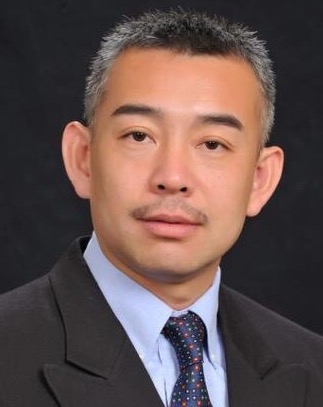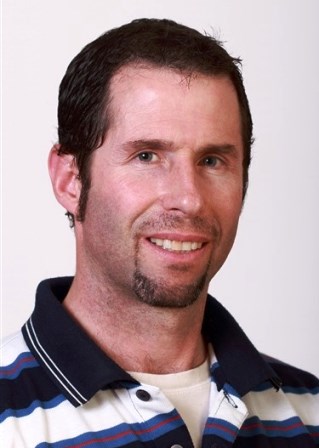
Categories: Energy ManagementCertified ProfessionalBuilding Operations and Maintenance
 When:
Starts November 27, 2023
When:
Starts November 27, 2023
 Duration:
5 days, 9:00 am - 4:30 pm CST
Duration:
5 days, 9:00 am - 4:30 pm CST
 Registrations Closing:
Friday November 24 at 12 pm CST
Registrations Closing:
Friday November 24 at 12 pm CST
| Early bird fee | $2,370/ Before October 2, 2023 |
|
Regular fee |
|
| AEE certification fee |
525$ |
| Continuing Education Units (CEU) | 3.0 |
| CSEP points | 4+2 (for certification) |
The Certified Building Commissioning Professional (CBCP) course is aimed at not only preparing participants to successfully pass the exam and earning the CBCP designation, but also reviewing all phases of commissioning projects and learning the best practices currently used.
At its core, building commissioning comprises quality-focused projects that serve to provide documented confirmation that building systems function according to criteria set forth in project documents to satisfy owners’ operational needs. Such projects have been proven to be important because buildings that operate suboptimally tend to have poor indoor air quality and comfort, consumer higher levels of energy, and produce equipment failures. Conversely, buildings that are properly commissioned typically have fewer change orders, tend to be more energy efficient, and have lower operation and maintenance cost. Commissioning can also restore existing buildings to high productivity through renovations, upgrades, and tune-ups of existing systems.
This five-day course is designed to meet the training needs of those who need to know the technical details of the commissioning process – from pre-design, through to the operations phase. The training also provides considerable detail on the fundamental principles of both new building commissioning and existing building commissioning (often called recommissioning). The trainer leads participants through an examination of all aspects of building commissioning by looking at dozens of case studies from successfully completed projects in hospitals, data centers, airports, university campuses, school districts, commercial buildings and more. Participants are also encouraged to produce real-world examples of their own through class dialogue and a few interactive exercises.
At the conclusion of the course, participants will be able to book and take on the CBCP exam online via ProctorU.
|
Note: CIET is the exclusive delivery partner for the CBCP training program in Canada. Should you want to attend CBCP training and come from outside of Canada, please visit AEE’s website. |
Upon completion of this course, you will:

CIET Virtual Real-Time Classroom training
This training will be offered virtually through Microsoft Teams. Upon enrollment, you will receive the information you will need to enjoy a great training experience.
CIET’s Pan-Canadian Virtual Course Schedule
| Other time zones | ||||||

Song formerly served as an Associate Director at the Energy Systems Lab of Texas A&M University, where he directed an internationally leading group of researchers, engineers, technicians and graduate students implementing building energy efficiency projects with an annual R&D/consulting budget over $8 million. He was the lead Principal Investigator for a comprehensive energy management program on the Texas A&M university campus, for which cumulative savings exceeded $90 million over a period of 17 years. Teamed with Dr. W. Dan Turner, the two personally walked through and assessed more than 600 buildings and campuses globally during the past three decades, leading cutting-edge data-driven energy conservation and asset/resource management programs resulted in measured and documented avoided costs and energy savings over $300 million. They co-developed DOE/AEE’s MCBCP® certification course and AEE’s CBCP® International & Domestic certification courses. Song is also on World Bank’s roster of energy efficiency experts.
In 2010, Song and Dr. Turner co-founded the Theory of Nodal Partners, which reflects their view of today’s world, IT, infrastructure, energy and utility’s supplies, transportation, storage and consumption, smart grid of everything, interplay and readiness.
Currently, as the Technical Advisor at Austin, TX-based Bee (Building energy efficiency, BeeUSA.com), Song consults and lectures worldwide in the scientific fields of monitoring & platform-based life-cycle building commissioning, master planning, asset and resource management, ESPC, UESC and PACE independent 3rd party M&V and integrated quality assurance, energy efficiency, O&M, sustainability and resiliency, smart buildings/campus/grid, CHP, TES, district-, micro-, and nano-grids, big data analytics, blockchain, quantum, and portable nuclear and hydrogen theories, and fog intelligence.

Ian Ball is a building engineer and team leader of commissioning services with TST. He started his career in 1991 as a construction engineer in Hong Kong. In 1994, he returned to Quebec and continued his career as a project manager on heat recovery projects and was involved in their design, installation, load calculations, controls, commissioning and monitoring. Between 2004 and 2011, Ian worked on numerous projects dealing with energy efficiency, commissioning and LEED certification. He has successfully obtained over $2M of financial incentives from various energy efficiency grant programs for his clients. In 2008 he received a Laureate (1st place) from the AQME Energia competition in the category existing buildings energy efficiency projects. Ian is a CBCP and also a member of the Mechanical Sub-Committee for the CSA Standard Z-320 for Building Commissioning and the Building Commissioning Association Eastern Canadian Chapter. He has successfully delivered numerous workshops for the D2$ program since 2009 (12 workshops, 6 in past 5 years).
Please click here to learn more about AEE’s eligibility criteria to obtain the certification.
Please note the eligibility criteria applies only to obtaining the certification and does not preclude you from attending the course.
Please click here to see everything you need to know about the certification process.
Access to a private SharePoint website with additional training material, references, and links.
Send us an email and we will respond as soon as possible.

This is to inform you that the course date is too close to be able to ship hard copies of the material to you on time. If you are willing to use the material in secured PDF, receive the material later (likely after the course) and pay upon registration, please click OK to continue the registration process. Please note that the shipping process will start only when the course fees are paid in full and delays are to be expected. Many thanks!